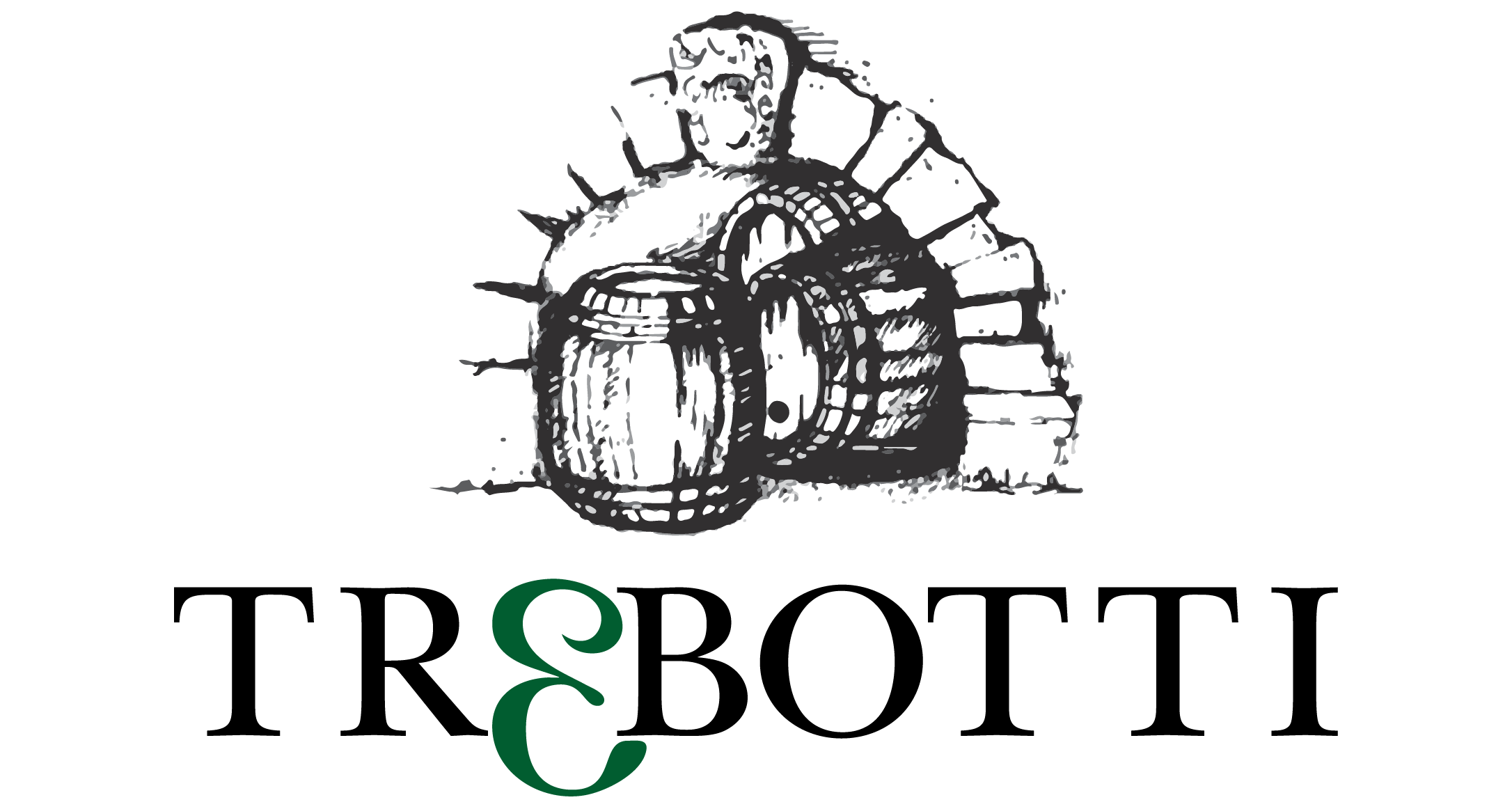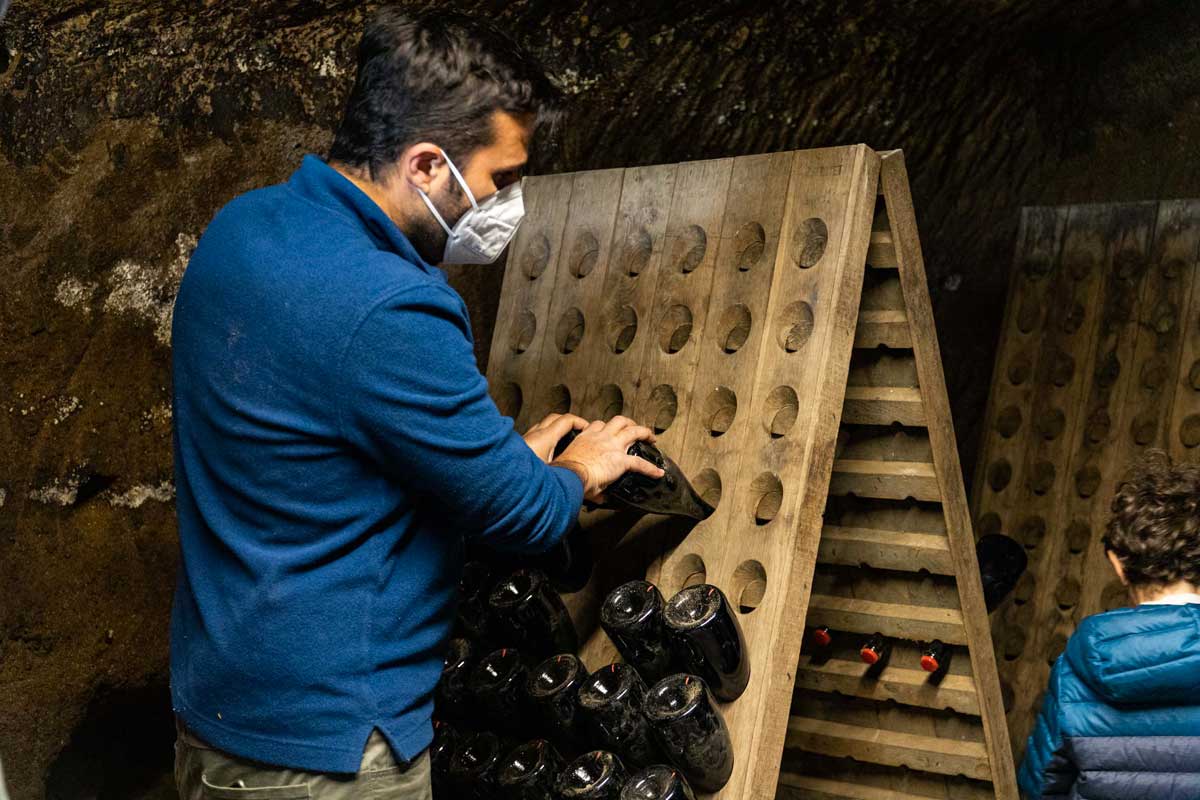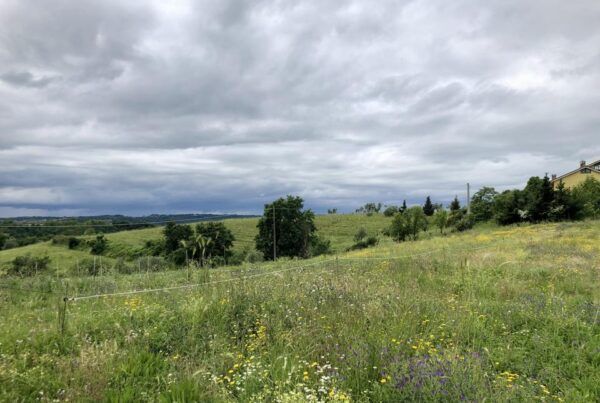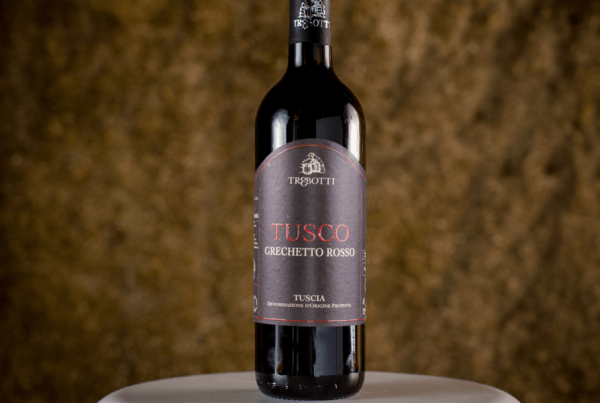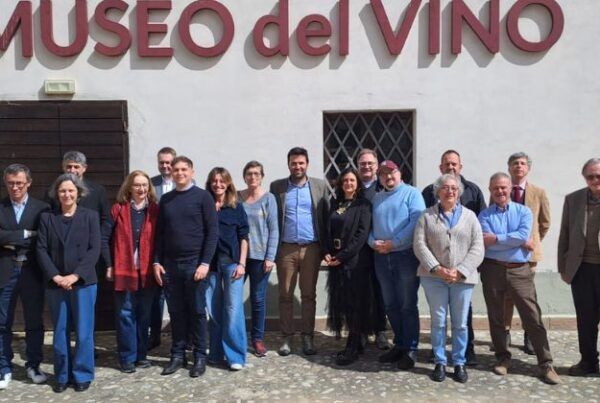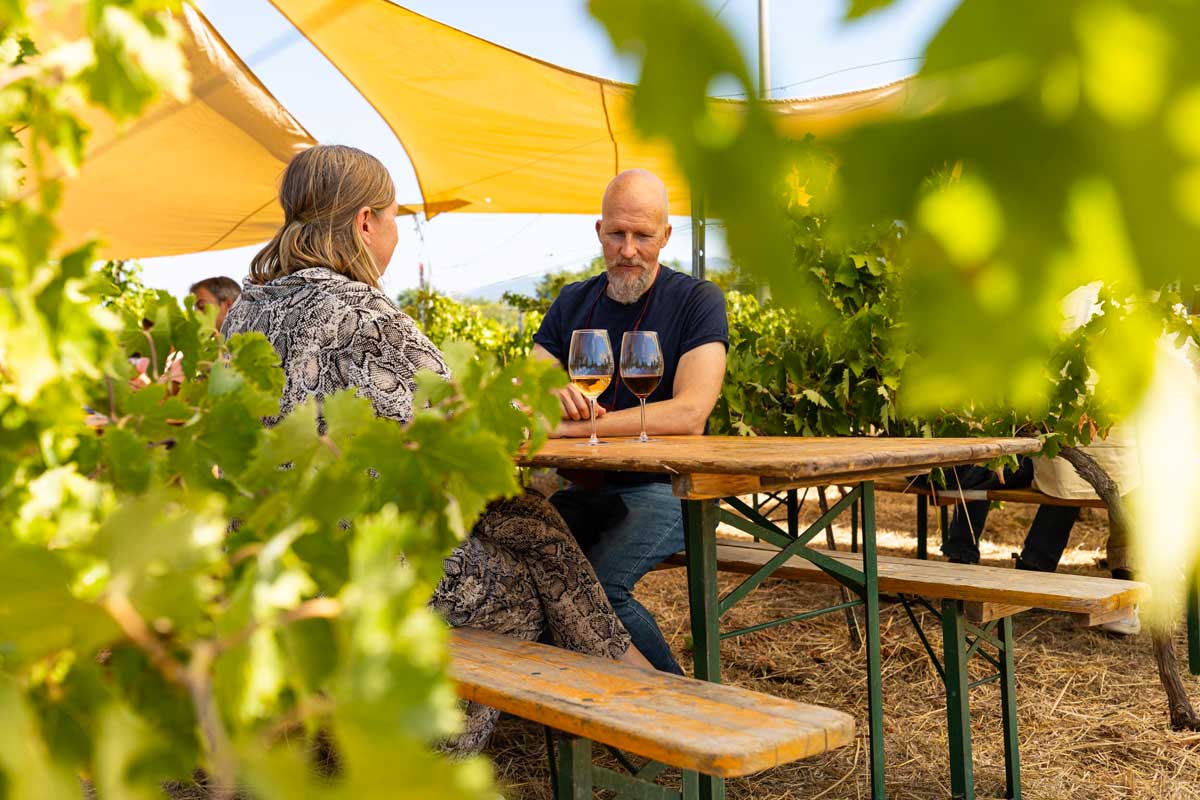
The Italian Federation of Independent Winegrowers (FIVI) was founded in 2008, following the model of the Confédération des Vignerons Indépendants de France (VIF), which itself began back in 1976 when a handful of winegrowers in southern France created a small union.
Today, the VIF counts over 7,000 winegrowers, grouped in 32 departmental federations and 10 regional ones, and is recognized by representative, decision-making, and consultative bodies at national, regional, and local levels.
In Italy, FIVI currently has over 1,300 members spread across the entire country (representing about 3% of the roughly 42,000 Italian wine producers). Joining FIVI means meeting important and strict requirements. A FIVI member company must be a people-driven business, with a legal representative (for Lazio, the FIVI delegate is Ludovico Maria Botti, owner of Trebotti — a bio-sustainable winery founded by the three Botti brothers in 2003, in Castiglione in Teverina).
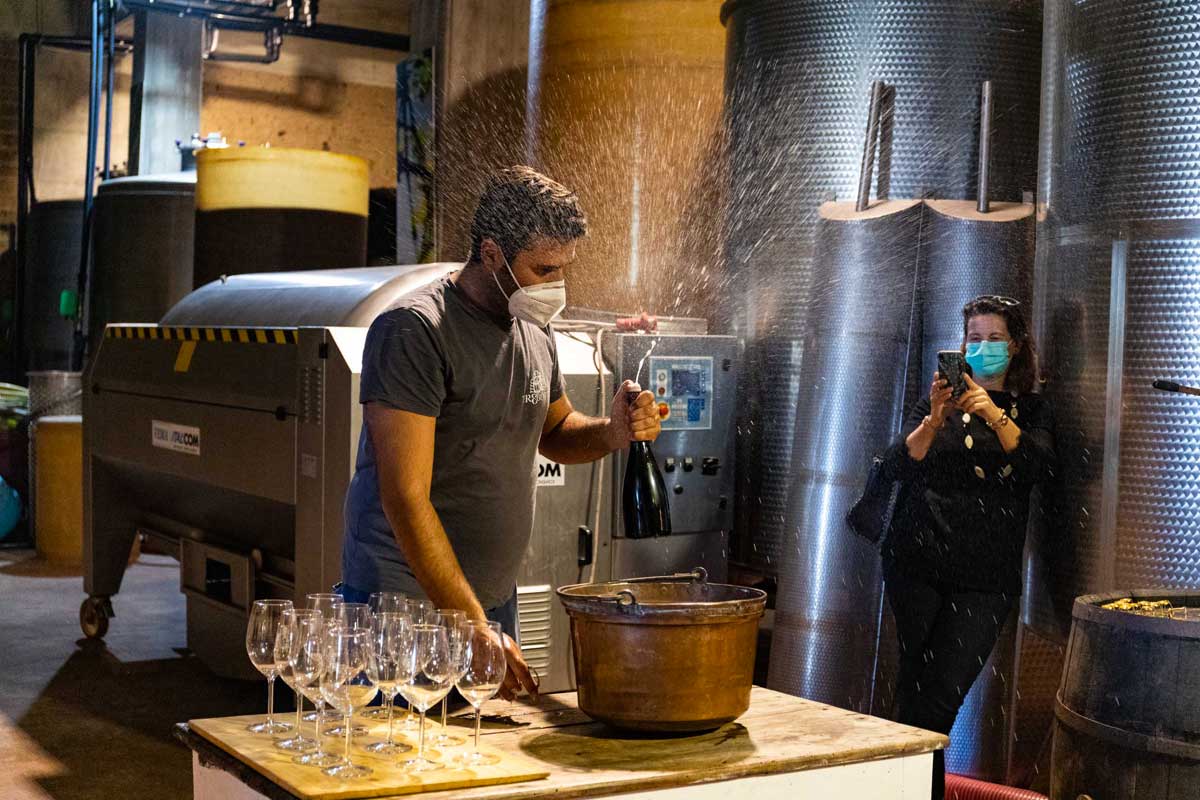
An independent winegrower must handle every stage themselves (from vineyard to marketing, including winemaking, tastings, and all related bureaucracy). Producing independent wine means using only your own grapes and selling only your own artisanal wines (in Trebotti’s case, organic wines, volcanic wines, and wines with no added sulfites), without buying grapes or wine from outside sources — except in rare cases like natural disasters that could threaten the winery’s survival.
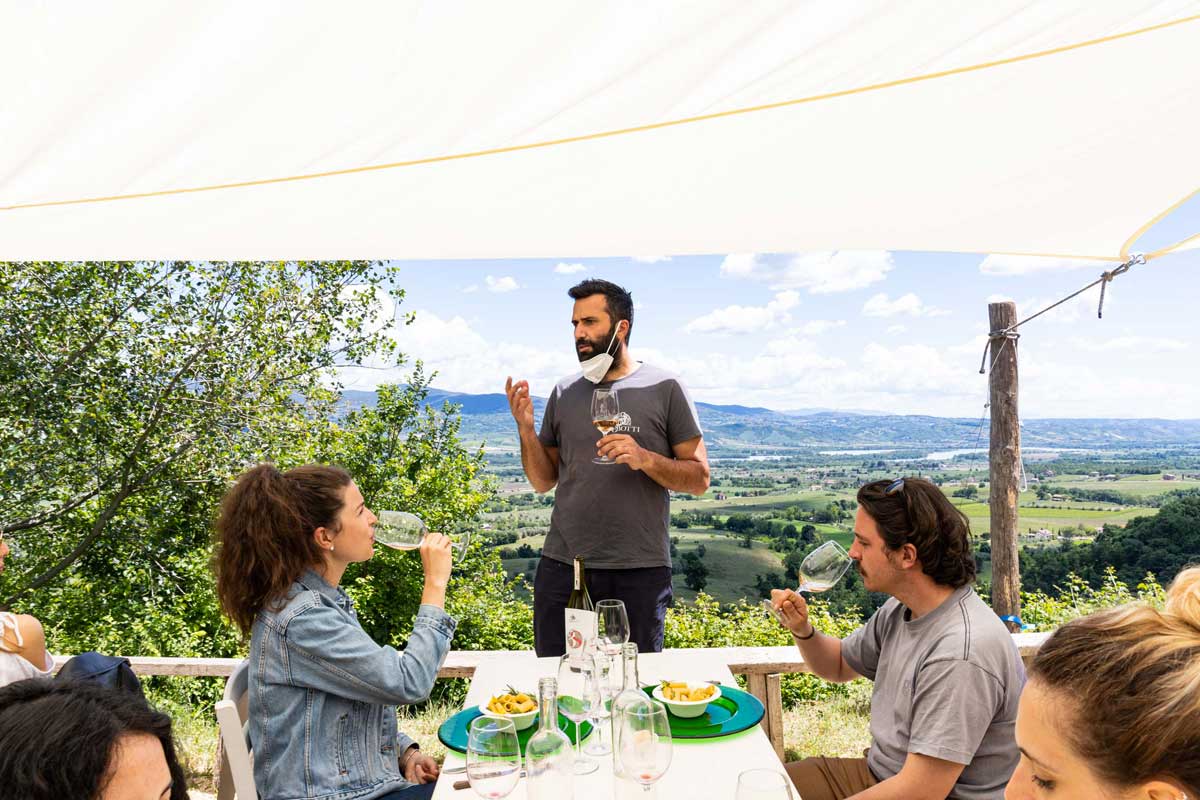
2021 has been a tough year for Trebotti due to climate change. The quantity of grapes harvested, although of excellent quality, is much lower than average due to just 7 mm of rain over 100 days (from late May to September). Trebotti has, for years now, numbered every bottle of each wine to let consumers track production volumes, ensuring transparency and proving that the wines come only from the estate’s own vineyards.
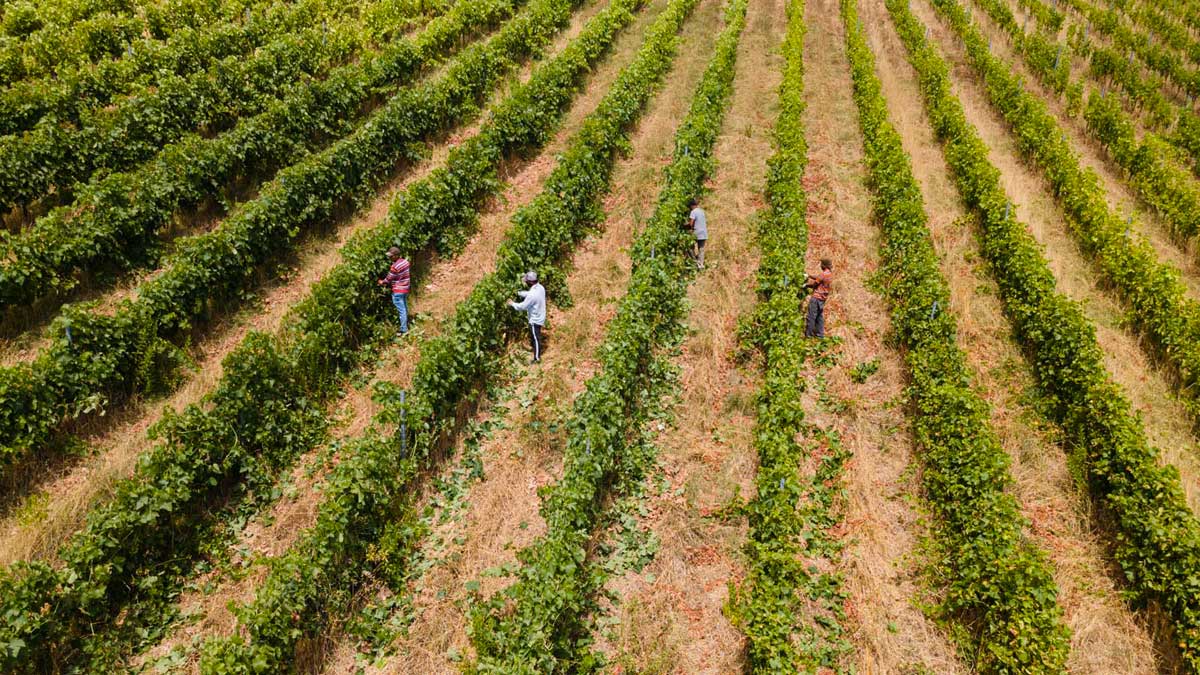
This clearly shows that the winery “makes wine in the vineyard, not in the cellar” — meaning nature (weather conditions, rainfall, temperatures, pests, etc.) is always the main “driver” of production.
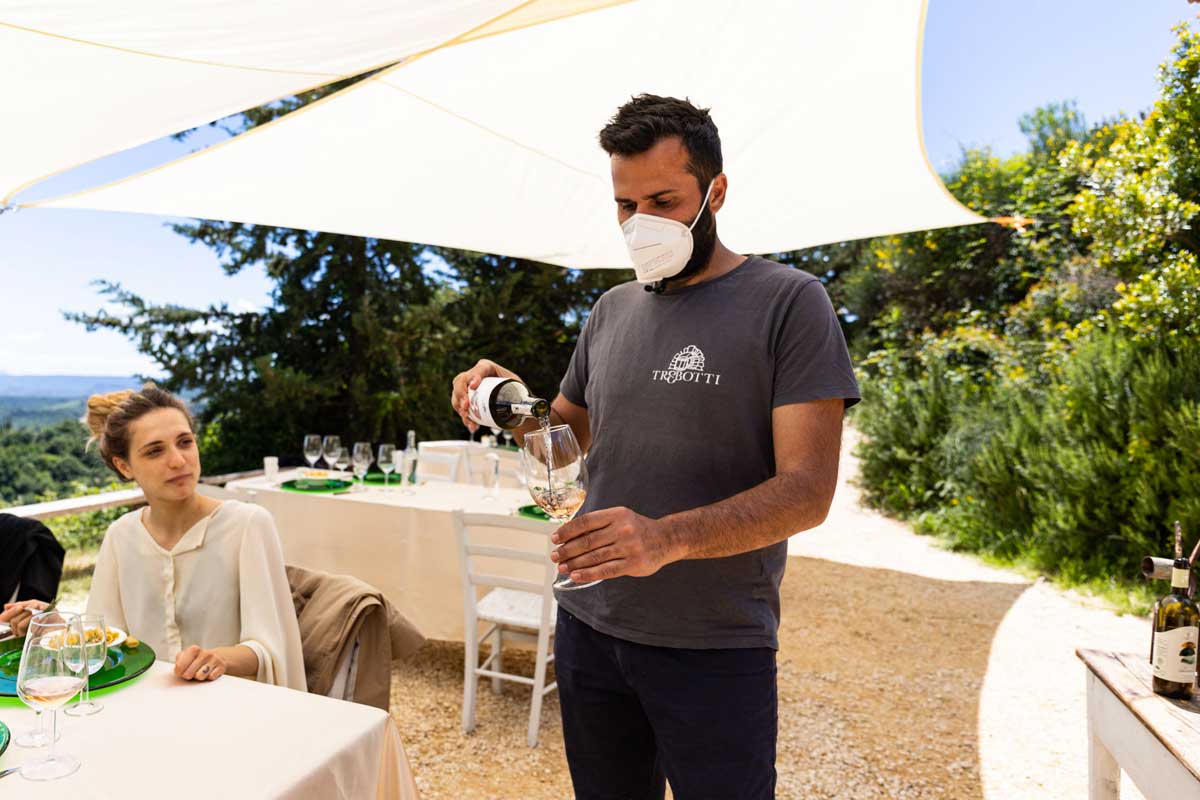
For example, the 3S Ancestrale (ancestral method sparkling wine) was produced in 2015 (579 bottles) and in 2016 (1,033 bottles). In 2017 and 2018, due to extreme conditions (80 days of drought in 2017 and three hailstorms in 2018), Trebotti chose not to produce it at all rather than buy grapes or wine.
This Christmas, an exclusive preview of 100 bottles of 3S Ancestrale 2019 will be released (the vintage totals about 1,588 bottles, which will be fully available at Christmas 2022 after three years aging in the Etruscan cave).
https://shop.trebotti.it/prodotto/3s-ancestrale
The greatest challenge is adapting to climate change: the winery is involved in experiments and projects to find new agronomic and winemaking techniques to handle extremes — drought, hail, sudden storms. Water management, now a limiting factor, is the most urgent issue. For DOC grapes, irrigation used to be forbidden; now it’s clearly needed in years like 2021 and 2017. New solutions must include larger rainwater storage and smart irrigation management to avoid waste, using innovative tools and digital automation.
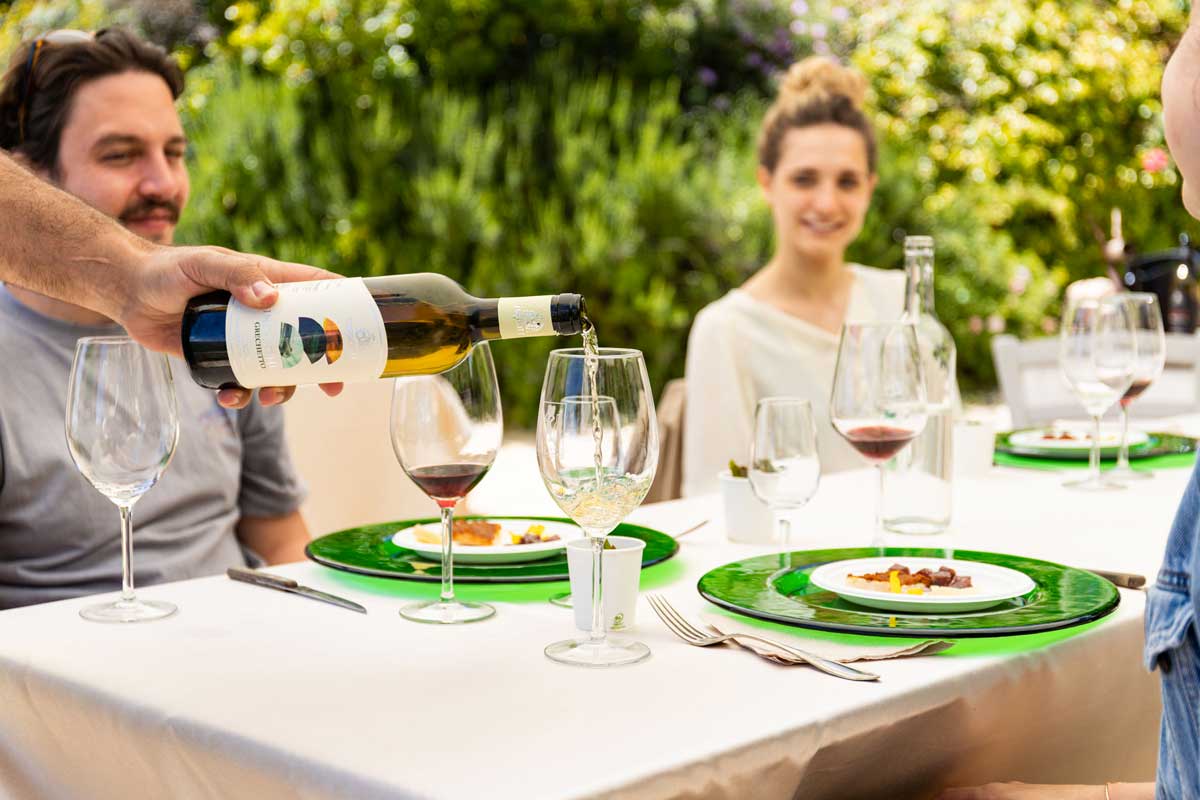
Producing organic wine sustainably is not just about selling wine — it’s also a duty and an opportunity to raise awareness and encourage conscious choices, informing friends, clients, consumers, or curious visitors about the innovation, sacrifices, and effort an organic winery must make in challenging seasons.
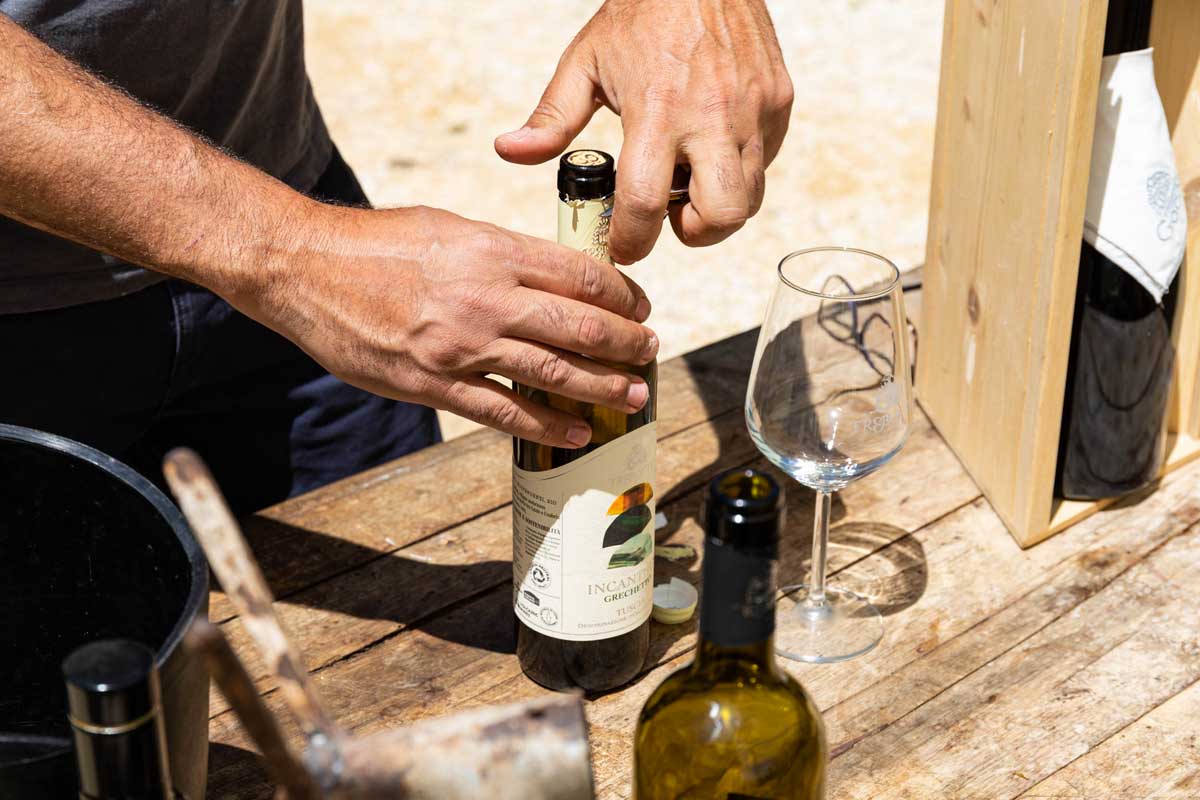
This is why, also to diversify and enrich its offerings, Trebotti launched the EcoWineExperience project a few years ago. A wide range of packages allows everyone (starting at just 15 euros for a tasting of at least six sustainable wines) to discover the winery, taste the wines and local food products, and learn about the sustainable choices and innovations that Trebotti has championed for almost 20 years.
Events are available seven days a week by reservation and can be personalized. And finally, after the summer break, the popular Sunday Lunches with the Winemaker will start again on Sunday, October 17.
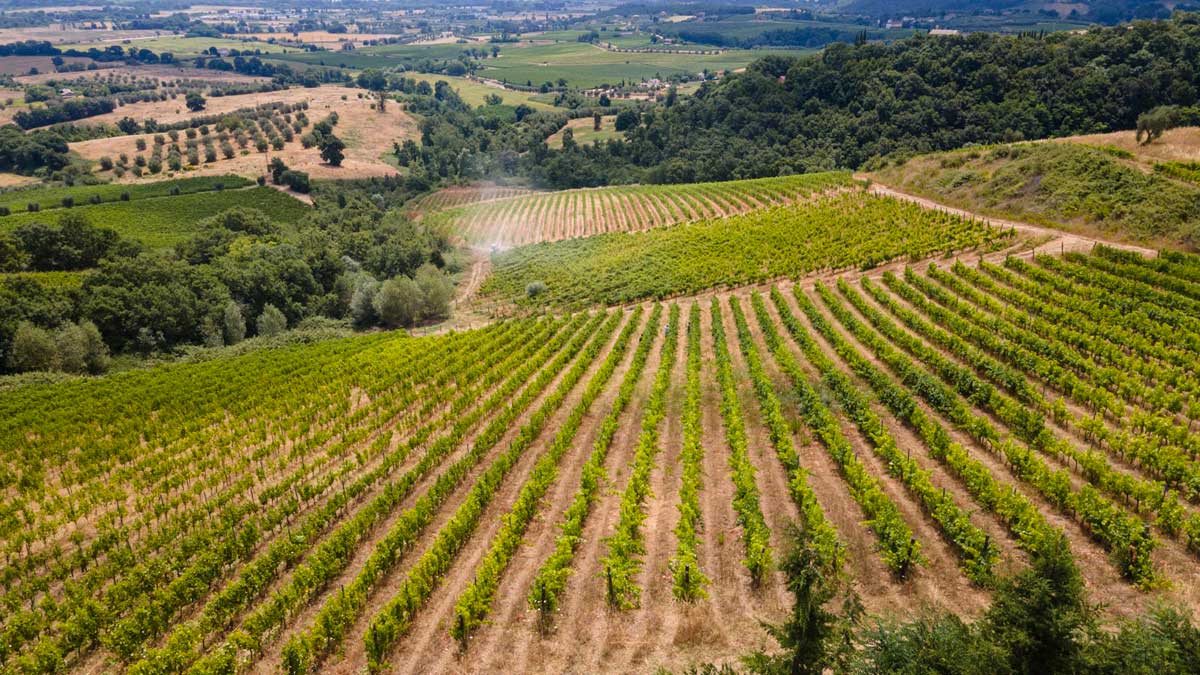
Ludovico and the Trebotti team welcome guests with a guided walk through vineyards, olive groves, the garden with donkey Jane, the vegetable plots, and the Etruscan cave, followed by a full menu from aperitif to dessert, with local products freshly prepared. Trebotti’s organic vegetable garden plays a leading role in the menus, respecting seasonality and nature’s timing. Other ingredients (artisan pasta, cheese, meat, mushrooms, truffles, desserts, gelato, etc.) come from long-time partners who share Trebotti’s organic, eco-minded vision. Vegetarian, vegan, and special dietary needs are always accommodated.
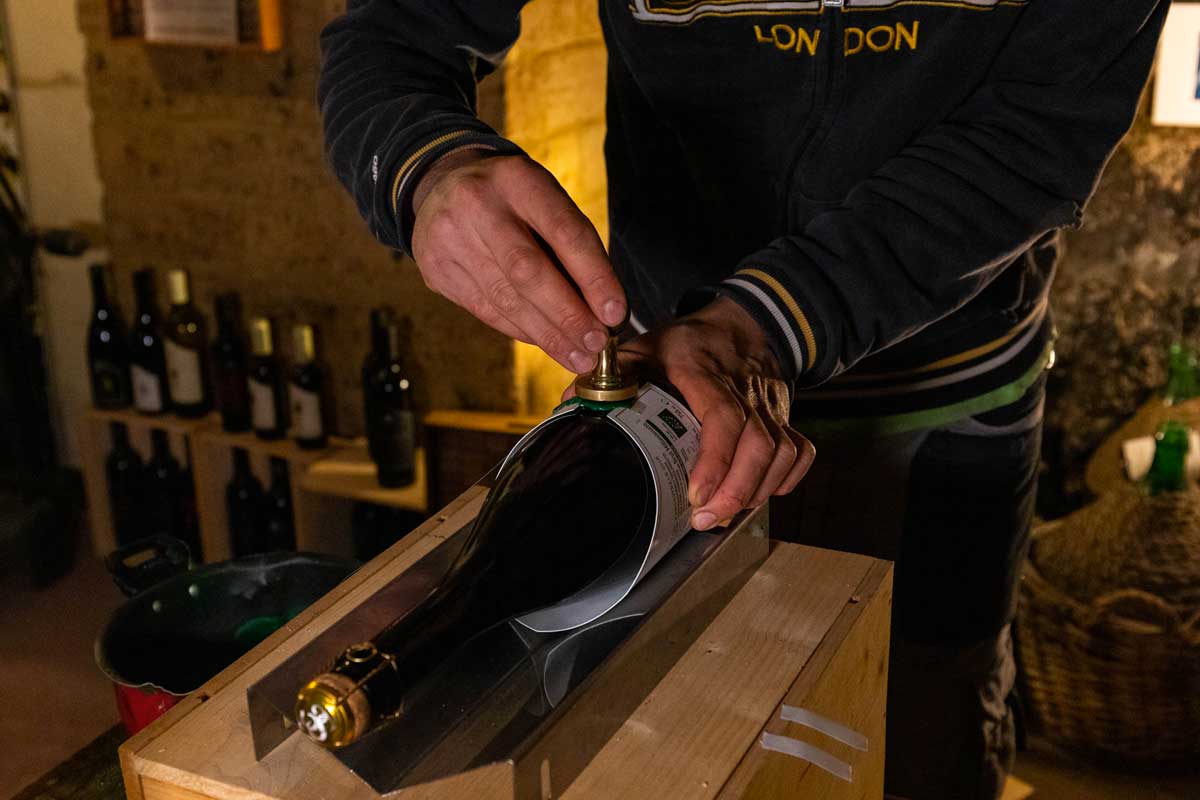
Each course is paired with a carefully selected wine, explained and shared with guests. All this is enjoyed in a relaxed setting, following all safety rules, and — weather permitting — with a breathtaking view over the Tiber Valley and Umbria. When autumn and winter weather makes outdoor dining impossible, lunches take place in Trebotti’s elegant tasting room, always safely.
Trebotti’s packages are easy to browse and book on the new online shop: https://shop.trebotti.it/ecowineexperience. A quick, user-friendly site where, with just a few clicks, you can book (or gift) beautiful, relaxing experiences that are also informative and meaningful.
It’s reassuring to see that despite the challenges and constraints of climate change, Trebotti proudly remains part of FIVI, staying committed to producing quality wines and maintaining an open, transparent dialogue with customers, friends, and supporters. And for this reason, the winery will be present at Piacenza from November 27–29 for the tenth edition of the FIVI Independent Winegrowers Wine Market.
